Report from ASM 2016: New Frontiers
Charlene KahlerChair of the local organising committee for ASM Perth 2016
Microbiology Australia 37(3) 145-148 https://doi.org/10.1071/MA16050
Published: 24 August 2016
We are very grateful for the support of the ASM membership and our industry partners for their attendance at the 44th Annual Scientific Meeting and Trade Exhibition held in Perth in July 2016. We are delighted to report that our 420 delegates had excellent weather with panoramic views from the conference center! Nevertheless, the exciting scientific program and the fantastic lunches encouraged our delegates to stay and network extensively with each other and our exhibitors!
Our conference began on Saturday with Educon, which was held at the School of Pathology and Laboratory Medicine, UWA. Delegates were put through their paces with demonstrations of the use of the schools E-learning suite, active learning and flipped classrooms. Delegates discussed the importance of laboratory work for prospective student employment and how industry-led student internships can enhance undergraduate access to laboratory skills. I would like to thank Megan Lloyd for excellent liaison with the EduCon organisers to make this a successful event!
Over 170 delegates attended the Sunday workshop program and were suitably impressed with the sessions from our special interest groups and our company sponsors, Thermo Fisher and Illumina. I would like to thank the workshop convener Fiona Daga and our catering convener Suzi McCarthy for their hard work in organising the day.
Our official program began with a public lecture entitled ‘WHO global alerts and the traveller!’ and included three eminent speakers; Dr Chris Baggoley AO, Dr Paul Effler and Professor Tania Sorrell. They provided their personal stories and professional insight into the issues facing the WHO including the challenges we face to bring health care to developing nations while maintaining the safety and security of our health care system in Australia. I would like to specifically thank Dr Allison Imrie who organised this session and acknowledge the support of the Center for Research Excellence in Infectious Diseases.
Our official scientific program opened with the Bazeley oration, which is an award supported by the Commonwealth Serum Laboratories. We are very grateful for the continuation of this award by CSL over many years at our annual conference and are excited to have it placed in our opening session! This year, Professor Ulrike Holzgrabe presented an excellent overview of the challenges in modern drug design.
In keeping with the theme of ‘New Frontiers’, the conference covered the main thematic areas of ‘Antimicrobial Resistance: Impact, mechanisms and solutions to a growing health care crisis’ and ‘The Good, the Bad and the Useful: Microbes in healthy ecologies, disease and industry’. I would like to thank our theme leaders: Professor Peter Hawkey, Professor Dan Andersson, Dr Brian Conlon, Associate Professor Susan Lynch, Professor Victor Nizet and Associate Professor Anna Durbin who delivered outstanding presentations that were highly praised by our delegates.
The plenary sessions were supported by a diverse array of national and international speakers who contributed to the 3-day scientific program. I would like to thank the Division chairs: Dr Tim Inglis, Dr Christopher Peacock, Dr Allison Imrie and Dr Harry Sakellaris in addition to the Scientific Program chair, Dr Megan Lloyd, for all the long hours and hard work putting this high quality program together.
We are also indebted to the Rubbo Trust for supporting the Rubbo oration which was awarded to Dr Anne Kelso, the CEO of the NHMRC, who presented her current analysis of the challenges facing research funding in Australia. We also thank the Nancy Millis bequest which supported a range of outstanding social activities for students and early career researchers including a round table on career advice which was exceptionally well received by all who attended. We also thank Dr Barry Marshall, the director of the Marshall Center for Infectious Disease Research and Training, who donated prize money for the three 3 minute thesis and four ASM poster awards. Thanks also to all those who participated in the judging of these awards.
We also presented nine major ASM awards to 18 participants! Each awardee is listed below with their details. We believe these awards reveal the depth and breadth of the talent within the Society and look forward to watching the careers of the student awardees over the coming years! We thank our industry supporters, Becton Dickenson and bioMérieux for their continued contributions to these activities.
Lastly I would like to thank the remaining local organising committee members, Dan Knight (secretary and advertising), Shakeel Mowlaboccus (student social activities), Chris Mullally (social media) and Rod Bowman (trade rep) in addition to ASN events (Kara Taglieri, Phil McShane and Jarrad Thessman) for their excellent support over the past two years in organising this conference. I was very honoured to chair this event!
At our closing event we heard a presentation from our colleagues in Tasmania who now carry the banner into the next year! They have already organised a stellar cast of plenary speakers and I urge everyone to have a look at the ASM website and save the date!

|
Honorary Life Membership of the Australian Society for Microbiology
Professor Lyn Gilbert was awarded Honorary Life Membership of ASM. Her certificate was presented by Julian Rood and Tania Sorrell.
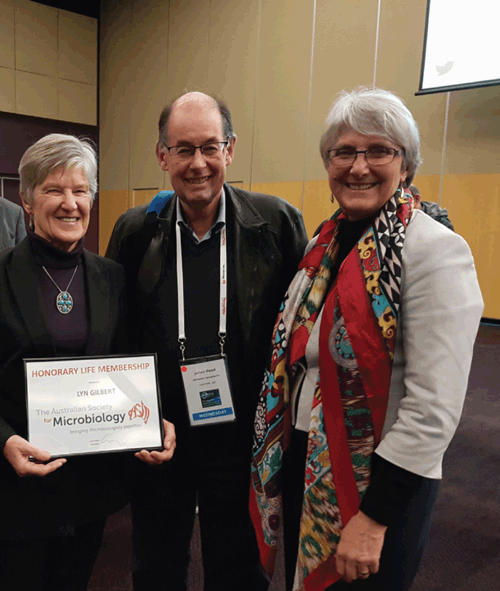
|
New Fellows of the Australian Society for Microbiology
David Whiley, Pathology Queensland & University of Queensland
Mark Turner, University of Queensland
Peter Speck, Flinders University
Matt Payne, University of Western Australia
ASM Distinguished Service Awards
Chris Ossowicz, SA/NT, Danilla Grando, VIC, Fran Morey, SA/NT and Sue Coloe, VIC were acknowledged with ASM Distinguished Service Awards.
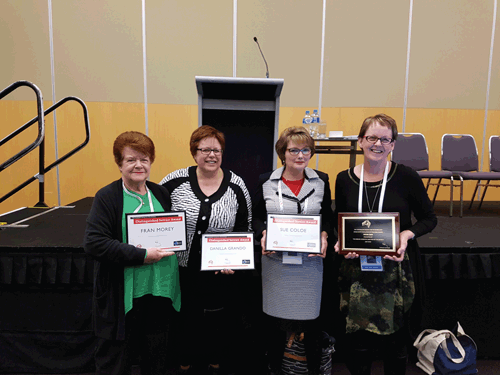
|
Clinical Travel Award: Pei Vern Fong
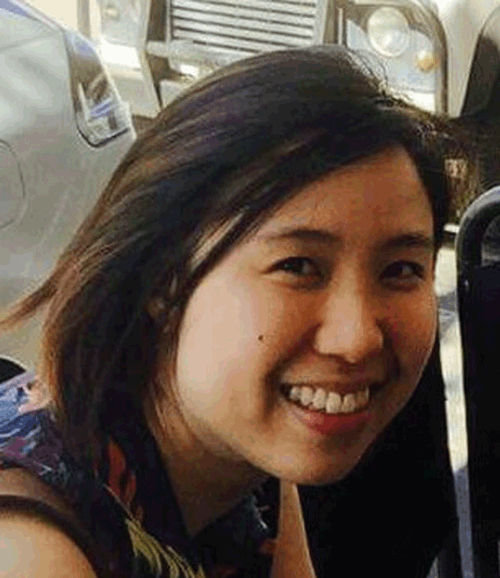
|
Pei is a junior scientist with just over 5 years of working experience in both private and public pathology. Her interests lies in organisms that are weird, wonderful and stinky. She is currently finishing her final Masters project in Actinomyces spp.
ASM Jim Pittard Award: Jaclyn Pearson
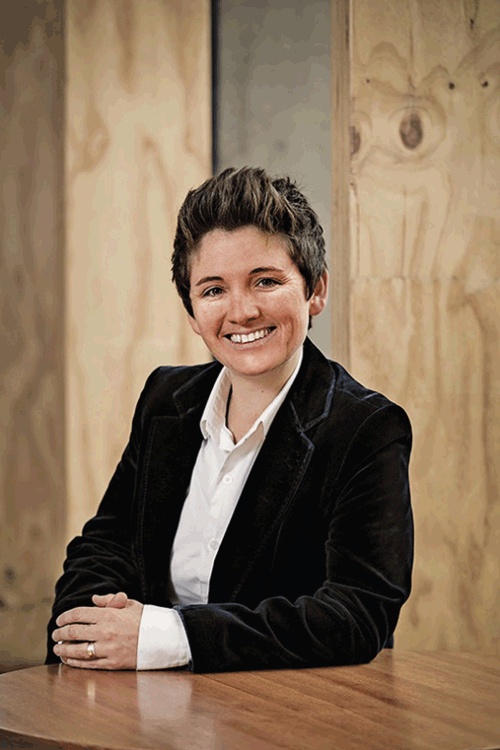
|
Jaclyn Pearson joined the laboratory of Professor Elizabeth Hartland at Melbourne University in 2009 to undertake a PhD on virulence mechanisms of pathogenic E. coli. Since the start of her research career in 2009, she has a total of 16 publications, as well as another four in review/preparation including a first author paper in review at Nature, and a corresponding author paper in preparation. She has made a number of discoveries that have advanced knowledge and practices within the immediate and broader field of her research. Her most recent research project describes a novel family of bacterial cysteine proteases that cleave all Rip homotypic interaction motif (RHIM)-domain proteins, both mammalian and viral.
Millis Colwell Postgraduate Award: Deanna Deveson
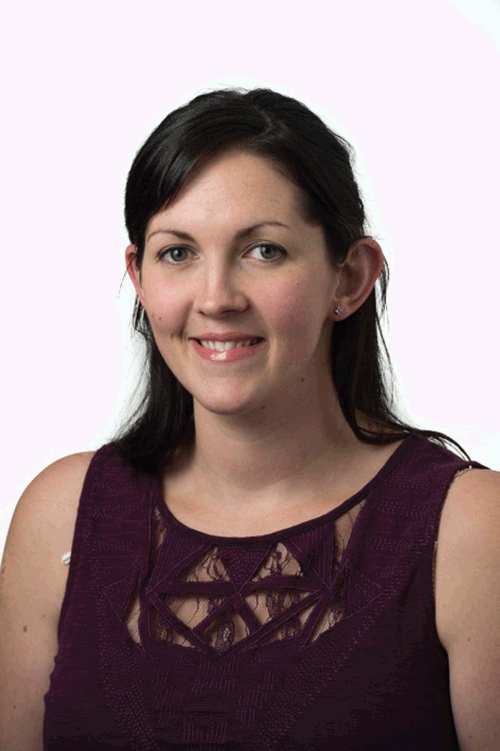
|
Deanna completed her BSc (Hons) in the Department of Microbiology at Monash University in 2004. Her honours project involved investigating regulation of virulence factors in Clostridium perfringens and was based in the Rood Laboratory. Following honours, Deanna worked at CSL Animal Health and Pfizer Veterinary Medicine Research and Development (VMRD) in the Bacteriology and Bioprocess Improvement Groups, developing, and trouble-shooting vaccines for domestic and livestock animals. Deanna undertook her PhD, ‘The bovine immune response to Leptospira borgpetersenii serovar Hardjo’, in collaboration with Pfizer VMRD and the ARC Centre of Excellence in Structural and Functional Microbial Genomics, Adler Laboratory, Department of Microbiology, Monash University, which she completed in 2014.
David White Excellence in Teaching Award: Helen Cain

|
Helen Cain has been a contracted (and later continuing) member of the staff of the Department of Microbiology & Immunology since March 2003. From 1992–2003 she was employed on a casual basis as a practical class demonstrator for microbiology practical classes and as a Problem Based Learning tutor for the undergraduate medical course. She also taught a Medical Microbiology unit in the Diploma of Animal and Biological Sciences course at Box Hill TAFE in 2001, and taught a unit on Introduction to Microbiology in the Certificate of Sterilisation and Disinfection at the Mayfield Education Centre, Hawthorn between 2000 and 2008.
bioMérieux ASM Identifying Resistance Award: Anton Peleg

|
Despite having a consistent clinical load, Professor Peleg has established himself as an international expert in the field of antibiotic resistance and hospital-acquired infections. The majority of these publications are on the study of bacterial resistance to antimicrobials in a clinical setting. He has published in the highest quality general medical or scientific journals. He has also written book chapters on Gram-negative resistance for leading reference texts in Medicine: Harrisons Textbook of Medicine and Kucer’s, The Use of Antibiotics. He has made several pioneering studies in the area of antibiotic resistance. He has been at the forefront of developing molecular methods for direct detection of antimicrobial resistance for Neisseria gonorrhoeae, an organism now ranked as an ’urgent’ antimicrobial resistance threat, the highest level designated by the CDC and shared with only two other organisms, Clostridium difficile and carbapenem‐resistant Enterobacteriaceae. He has 17 years’ experience in clinical microbiology research and is a leading authority in molecular detection and characterisation of infectious diseases, particularly sexually transmitted infections and novel or emerging agents.
ASM Frank Fenner Award: Scott Beatson and Kate Seib
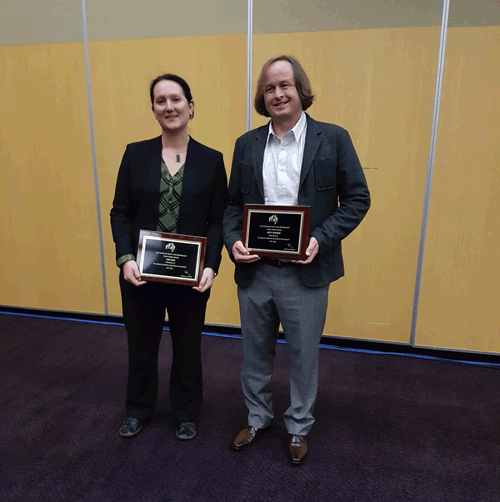
|
Scott Beatson is an Associate Professor at The University of Queensland and is a member of the Australian Infectious Diseases Research Centre and the Australian Centre for Ecogenomics. He leads a research group in bacterial pathogenomics at the School of Chemistry and Molecular Biosciences. He was awarded a PhD in Genetics from the University of Queensland for his work on Pseudomonas aeruginosa pathogenesis in 2002 and holds Masters degrees in Microbiology and Bioinformatics from the Universities of Otago and Manchester, respectively. Competitive fellowships from the Royal Commission for the Exhibition of 1851 and MRC (UK) supported his postdoctoral study of bacterial genomics at the Universities of Oxford and Birmingham, UK, before he returned to Australia in 2006 as a NHMRC Howard Florey Fellow.
Dr Kate Seib’s research is focused on understanding the processes involved in host colonisation and disease, with the aim to identify vaccine targets for mucosal pathogens including Neisseria meningitidis, Neisseria gonorrhoeae and Moraxella catarrhalis. Dr Seib completed a PhD in microbiology in 2004 from the University of Queensland (Brisbane, Australia) and worked briefly as a Postdoctoral Researcher in Australia. She then spent 6.5 years at Novartis Vaccines (Siena, Italy) as a Postdoctoral Researcher and Project Leader. Dr Seib returned to Australia in 2012 and is a Group Leader and NHMRC Career Development Fellow at the Institute for Glycomics, Griffith University (Gold Coast). She is the current Chair of the Queensland Branch of the ASM.
ASM Lyn Gilbert Award: David Smith

|
BD ASM Student Travel Awardees
Victoria
Joshua Newsome, University of Melbourne
South Australia
Felise Adams, Flinders University
New South Wales
Caitlin Abbott, University of Sydney
Tasmania
Neeraj Singh, University of Tasmania
Queensland
Leah Roberts, University of Queensland
Western Australia
Daniel Knight, University of Western Australia


